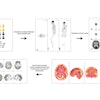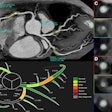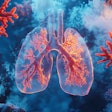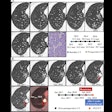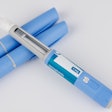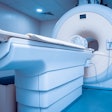Dear AuntMinnie Member,
Lung cancer is a serious problem in China, causing more than 600,000 deaths in 2015 alone. Adopting low-dose CT screening could significantly lower that number, however, according to a new study.
Using a statistical model, Chinese researchers found that CT screening could reduce lung cancer deaths by 24% -- saving close to 150,000 lives a year. The authors concluded that an optimal screening program would focus on an age range of 55 to 75, as well as target areas of China with the highest smoking rates.
You can access Editor-in-Chief Brian Casey's coverage of the research by clicking here, or visit our CT Community at ct.auntminnie.com.
WhatsApp for pediatric ortho trauma
Researchers are continuing to explore the clinical utility of WhatsApp, the most popular instant messaging app for smartphones. An Israeli team has found that WhatsApp could be useful in a pinch for pediatric orthopedic trauma cases, enabling orthopedic surgeons to render a preliminary diagnosis before they have access to a computer.
In a study involving 73 cases of pediatric limb trauma, pediatric orthopedic surgeons had "near perfect" agreement between interpretations of x-ray images on the smartphone and those on the PACS workstation. Using WhatsApp, physicians could potentially develop treatment plans more quickly and reduce unnecessary referrals to tertiary hospitals, according to the team from Rambam Health Care Campus in Haifa.
Click here for our coverage, or visit our Imaging Informatics Community at informatics.auntminnie.com.
Self-driving doctors?
Can the automotive industry's development of self-driving cars offer some insight into how artificial intelligence will be adopted in radiology? Yes, it can, according to a column by Eran Rubens of Philips Healthcare.
You can learn why by clicking here or visiting our Artificial Intelligence Community at ai.auntminnie.com.




